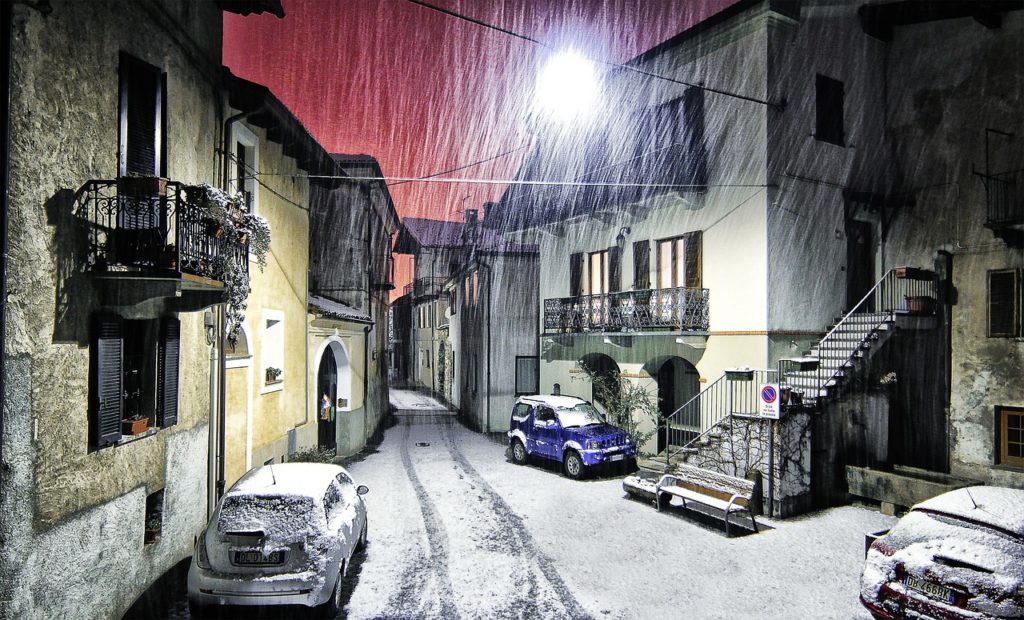Winter Vocabulary Posted by Bridgette on Dec 4, 2020 in Italian Language
Il vocabolario invernale – Winter vocabulary
Buongiorno lettori! Good morning readers!
It is starting to feel like inverno (winter) here since yesterday was our first nevicata (snowfall). I have been dreaming about ‘una settimana bianca’ (‘a white week’) which is a common term used in Italy to indicate una permanenza in montagna per un periodo di vacanza di circa sette giorni, a stay in the mountains for a period of vacation of around seven days. Some typical winter sports that are enjoyed during this time are lo sci alpino (alpine skiing), lo sci nordico (nordic skiing), lo snowboard (snowboarding), lo slittino (sledding), o il pattinaggio sul ghiaccio (ice skating).
A me piace lo snowboard, I like snowboarding and for that reason non vedo l’ora per la neve (I can’t wait for the snow)!
Il solstizio d’inverno (winter solstice) is not here until il 21 dicembre, but let’s learn some vocabolario invernale in the meantime because è quasi arrivato, it has almost arrived!
Qualche vocabolario:
La neve – Snow
Il fiocco di neve – Snowflake
Il caminetto – Fireplace
Il pupazzo di neve – Snowman
Scivoloso – slippery
Gelido – freezing
La bufera di neve – blizzard
La tempesta – storm
La battaglia a palle di neve – snowball fight
Il maglione, il pullover – sweater
Il berretto di lana – wool hat
I paraorecchie – earmuffs
La sciarpa – scarf
I calzini – socks
Gli stivali – boots
I guanti – gloves
Le manopole, le muffole – mittens
Fa un freddo tremendo – It is terribly cold
Mi sto gelando – I am freezing
Non me ne posso più di questo freddo – I can’t take this cold anymore

Build vocabulary, practice pronunciation, and more with Transparent Language Online. Available anytime, anywhere, on any device.





Comments:
vince:
Thanks for improving my English. Never heard of Meteopathy before. 🙂 Another enlightening Italian lesson. Thanks!
Barbara Cassidy:
Grazie, molto ben fatto. Abito in Italia, anch’io Irish American, italo and francophile. Mio marito era italiano. 2. figli nati qua. Congrats, well done!
BC
Chiara Zanon:
Veramente in italiano si dice: Non vedo l’ora CHE arrivi la neve (non vedo l’ora is followed by CHE +subjunctive). Inoltre: Non NE posso più (without ME).
Kitty Choi:
Thank you. The winter vocabulary is so useful. Thanks for sharing.
Rosanna g McFarlin:
Fate sempre un bel lavoro. Molto utile e comprensibile. Grazie.
Raffaella Feinstein:
Don’t know what I would do without This Italian blog.
My daughter lives in Italia and It helps me to review and keep up my Italian studies so that when I visit I can communicate with friends and family there.
Coccinelle196:
Replying to Chiara Zanon. Non vedo l’ora can also be followed by che (not always) plus different subject + subjunctive tense.. generally speaking it is non vedo l’ora di .. vederti etc..